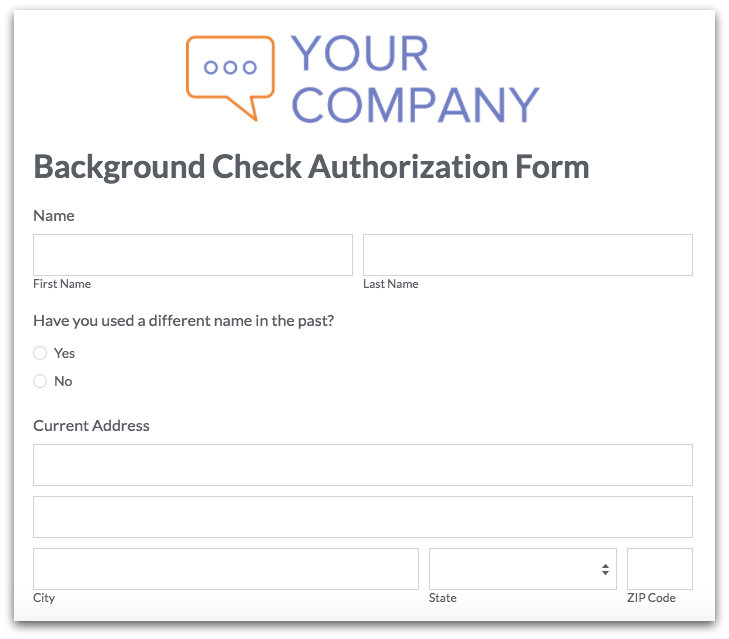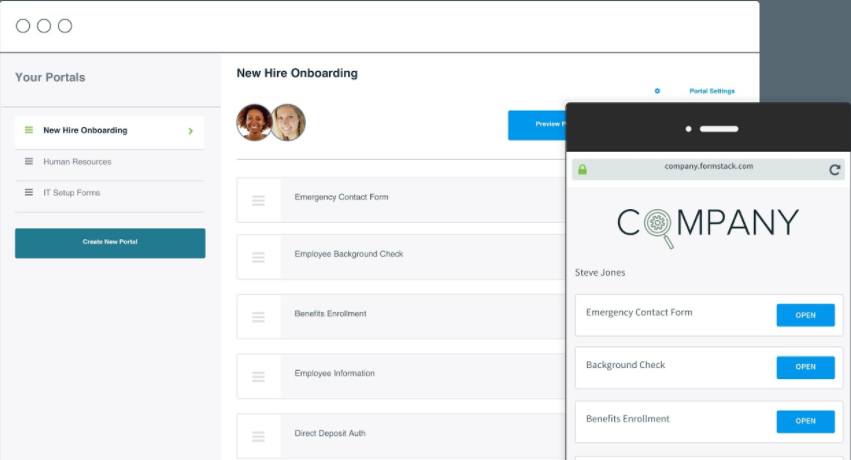In today's world, we all live automated lives. Mobile phones and other technology permeate almost every area of our existence. Need new clothes? Buy them online. Hungry? Order from your favorite online delivery service. We’ve come to expect instantaneous gratification and convenience. And we expect no less in our professional lives as well. If your HR team is using outdated methods to onboard new employees (like giving them stacks of paperwork), you’re not meeting their expectations. Instead, they’re feeling stressed and maybe a little frustrated. And they’re not alone. Your team is probably experiencing the same feelings as they try to keep up with disorganized tasks and due dates. If your company still needs to catch up, read on. Here are 3 ways online forms and other modern onboarding tools can set new employees on the path to success and help your HR team become more efficient:
1) Important paperwork becomes easily accessible.
Nothing increases new employees' anxiety more than receiving a pile of paperwork to complete on their first day, especially when they’re in the midst of meeting new team members and acclimating themselves to the responsibilities of their job. Replacing paper onboarding forms with online forms can eliminate stress and save both you and your new hires hours of work.

In addition to being more efficient, online forms are also super easy to set up. All you need to do is add the right fields, customize your forms to match your company’s branding, and share them with new employees via a URL. New hires can fill out the forms on their tablet or mobile device, and you can easily collect necessary file uploads and signatures—all without the need for paper.
2) Onboarding tasks are easier to track and complete.
As many HR professionals know, errors are easy to make with a paper onboarding system. Tasks are often skipped or completed in the wrong order, which can frustrate both your team and your hires. If your HR team is struggling to track to-dos and timelines, organizing all your onboarding forms into a shareable online group can help. At Formstack, we use a tool called Portals to share our onboarding forms with new employees and easily track submission progress.

After setting up an onboarding portal, you can share it with new employees via a link. Over time, your team can track submissions and send out email reminders to ensure that important onboarding tasks are completed. It’s a simple and efficient way to streamline your company’s onboarding process and ensure that new employees are smoothly integrated into your company.
3) New hires form a positive impression of your organization.
Finally, an automated employee onboarding process can facilitate a positive first impression of your company. This is important, because if your employees have a negative experience during their first few days of employment, it may not be long before they’re looking for other opportunities. According to Monster, 50-60% of employees actively look for a new job. This means that making the right impression from day one is essential if you want new employees to feel happy at work and stay with your company for the long run. To meet this goal, you can send your hires an online survey that measures their first impressions as well as how they think the onboarding process can be improved. Online survey tools like Conditional Logic (hiding or showing form fields based on previous answers) can help you streamline your surveys and tailor them to individual employees. The feedback you receive will prove to be invaluable as you continue to enhance your employee onboarding process for the benefit of future hires.
Want to learn more about online forms and how they can help you transform your employee onboarding process? Click here to explore Formstack’s HR form solutions and the ways they can help you successfully onboard new employees.











